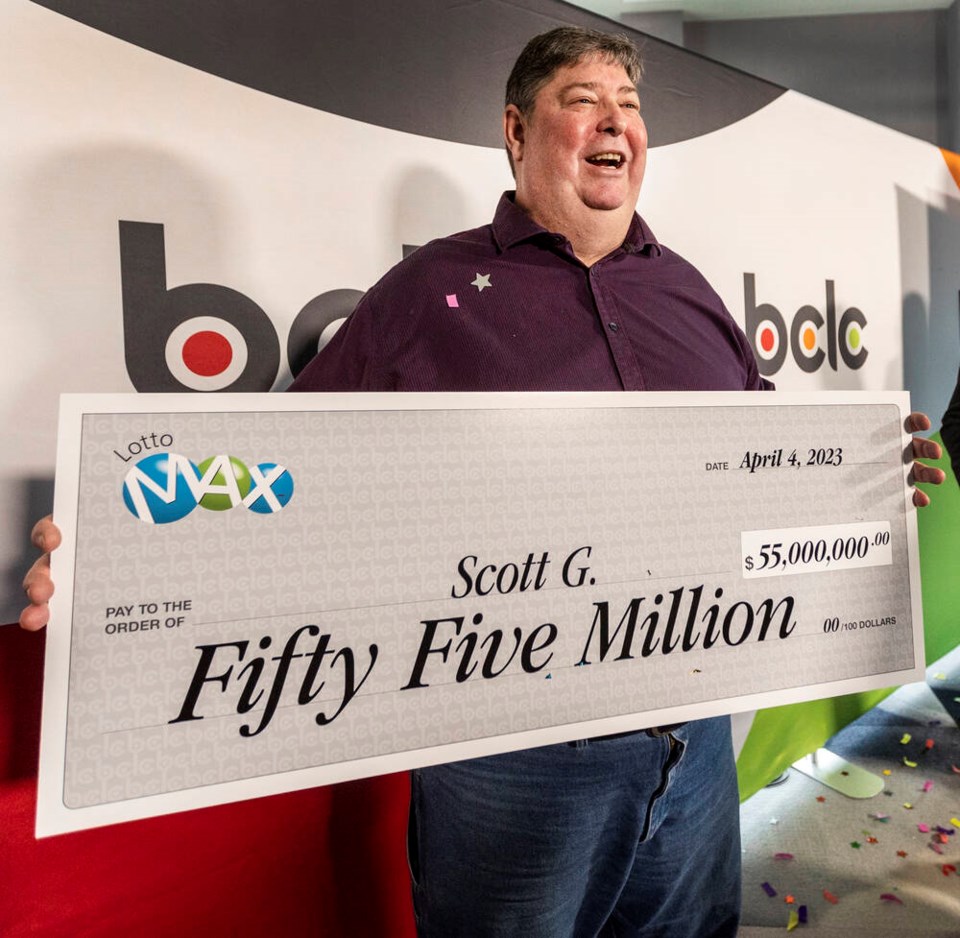If someone calling himself Scott Gurney asks you to send him Bitcoin, it’s almost certainly a scam.
One man has already told the real Gurney, who came forward this past week as the winner of a $55-million in a Lotto Max jackpot, that his name was used to con them out of $300 worth of Bitcoin.
“As the old saying goes, use the smell test on it. If it doesn’t smell right, throw it out,” Gurney said Saturday.
Gurney, who is 58 and lives in Sidney, said he told the man: “It’s not something you talk to me about. Your next call has to be to the RCMP.”
If something sounds too good to be true, it generally is, he said.
“I’m sorry that people have maybe been down on their luck and are looking for those avenues, but I don’t know many people who just hand out cash easily,” he said.
Another person told the Times Colonist that they had lost $450 worth of Bitcoin after reaching out to a Facebook account that appeared to belong to Gurney and was offering to help families.
It is not clear how the scammer or scammers persuaded people to send Bitcoin.
Several fake Facebook accounts purporting to belong to Gurney have appeared on the social media site. In each case, they show a photo of him holding his lottery cheque. (Gurney does not have that photo on Facebook.)
On some pages, the imposter offers to give money to people. One fake page said, “I will be helping 20 families with 30k each.”
The pages typically state that he lives in Vancouver and is married (false). Some feature feel-good slogans, often with clumsy wording. “Whatever you are, be a good one,” and “Giving is the key to life life of abundance blessings.”
Some even warn of scams and imposters, assuring people that theirs is the only legit account.
Gurney said a friend found 11 fake accounts under his name.
He said he will not be asking for new friends or accepting new friends on Facebook.
A financial adviser, Gurney is used to seeing scams, particularly from those pretending to be from the Canada Revenue Agency.
He said his winnings are being parked for now.
Gurney is busy working to make sure his clients are taken care of. He worked Saturday and plans to work today as well. “I’m trying to get tax season done.”
He said his clients have been wonderful to him. “A lot of them have become friends over the years. So you’d never throw a friend out in the cold.”
At this point, he expects the business will change hands later this year and plans to train the new owners. December seems like a likely retirement date.
Winning a large lottery like this is a “life-altering” experience, he said.
“I’ve got to respect it, you know.” Gurney has heard too many stories about people running through their fortunes too fast or being taken advantage of by an unscrupulous person.
“It just adds another responsibility that you probably didn’t have before.”
It helps that Gurney has been working with finances for three decades.
“I’ve seen a lot of stuff,” he said. “You kind of have a duty to take your time and carefully analyze what you need to do.”
Gurney is a cheerful, down-to-earth person who plans to keep his 2016 Mazda CX-5 SUV. “Darn rights. It’s a good little car.”
He’s not sure what the long term holds, but is mulling over travel and getting involved with the community.
The B.C. Lottery Corporation said people with questions or concerns can contact their office.
“Anyone who gets any type of unsolicited message should be cautious and not reveal any personal information or make any monetary payment,” the corporation said in a statement.
They can report messages to the Canadian Anti-Fraud Centre at 1-888-495-8501 or online at www.antifraudcentre-centreantifraude.ca.
If someone suspects criminal activity, they should call police, the corporation said.
When it comes to the fake Facebook accounts, the company says this goes against its community standards policy and they are not permitted. It lists a steps for reporting pages which impersonate others. Click on your profile image and choose “help and support.”



